Easton Press Anthony Burgess books
A Clockwork Orange - Masterpieces of Science Fiction - 1986Franklin Library Anthony Burgess books
Kingdom of the Wicked - signed first edition - 1985Little Wilson and Big God - signed first edition - 1987
Anthony Burgess biography
Anthony Burgess, a prolific English writer, composer, and linguist, was born John Anthony Burgess Wilson on February 25, 1917, in Harpurhey, a suburb of Manchester, England. His life and literary career were marked by a multifaceted exploration of language, music, and the complexities of human nature. Burgess's early life was shaped by personal and historical challenges. He served in the British Army Medical Corps during World War II, an experience that profoundly influenced his later works. After the war, he worked as a teacher and education officer in Malaya (now Malaysia), where he developed a passion for languages and immersed himself in the cultural diversity of the region.His literary career began in the 1950s, and his early novels, including Time for a Tiger (1956), were set in Malaya. However, it was with the publication of A Clockwork Orange in 1962 that Burgess achieved international acclaim. The novel, a dystopian exploration of youth culture, crime, and government intervention, became his most famous work. Stanley Kubrick's film adaptation further propelled Burgess and A Clockwork Orange into the cultural spotlight. Burgess's literary output was staggering, with over 30 novels, numerous short stories, and plays to his name. His works often delved into philosophical and linguistic explorations, showcasing his deep intellectual curiosity. Notable novels include The Wanting Seed (1962), Inside Mr. Enderby (1963), and Earthly Powers (1980).
In addition to his contributions to literature, Burgess was a talented musician and composer. He composed symphonies, operas, and numerous musical works. His love for music and language often converged in his writing, creating a unique fusion of literary and musical expression.
Burgess's personal life was marked by challenges, including a diagnosis of a brain tumor in 1960, which he believed to be fatal. Faced with what he believed to be limited time, Burgess intensified his creative output. Remarkably, he went on to live for several more decades, undergoing brain surgery that left him temporarily blind but did not hinder his creative endeavors. Burgess's autobiography, Little Wilson and Big God (1987), offers a candid and insightful look into his life, capturing his wit, intelligence, and resilience. Despite health challenges, he continued to write prolifically until his death on November 22, 1993, in London. Anthony Burgess's legacy extends far beyond A Clockwork Orange. His body of work encompasses a vast range of genres and themes, showcasing his versatility and intellectual prowess. Burgess's exploration of language, morality, and the human experience continues to captivate readers and scholars alike, cementing his place as one of the most distinctive voices in 20th-century literature.
1985
1985 is a dystopian novel written by Anthony Burgess, first published in 1978. The novel is often seen as a response to George Orwell's 1984, offering a different take on the potential future of a totalitarian society. Burgess was known for his linguistic inventiveness and his exploration of complex themes, and "1985" is no exception. In this novel, Burgess envisions a world where the government, known as The State, controls every aspect of its citizens' lives. The narrative revolves around the character of John Anthony Cabal, a literature professor who is arrested for questioning the State's authority. Cabal undergoes a process of psychological reprogramming, including the erasure of his memories and the implantation of a new identity.The novel explores themes of free will, individuality, and the power of the state over the minds of its citizens. Burgess delves into the psychological and linguistic aspects of control, using his trademark linguistic inventiveness to portray the manipulation of language as a tool of oppression. 1985 is distinct in its exploration of how a regime maintains control not just through physical force but also by shaping the way people think and communicate. Burgess, known for his interest in linguistics and language, uses the novel as a platform to dissect the role of language in societal control.
While 1985 did not achieve the same level of popularity as Burgess's earlier work, such as "A Clockwork Orange," it remains a thought-provoking and linguistically rich contribution to the dystopian genre. The novel invites readers to reflect on the nature of authority, individual autonomy, and the subtle ways in which language can be manipulated for political purposes.
A Clockwork Orange (1971) Stanley Kubrick directed the film adaptation of Burgess's most famous novel. The movie, like the novel, explores dystopian themes, youth culture, and the morality of free will. It remains a classic in the realm of cinema.
A Clockwork Orange (2005) This is not a direct adaptation but rather a documentary titled Still Tickin': The Return of A Clockwork Orange. Directed by William F. Nolan, the documentary explores the impact of the original film and its enduring cultural significance.
Vinyl (1965) Burgess wrote the screenplay for this film, which was directed by Andy Warhol. The movie explores the life of a rock star and the challenges he faces in the music industry.
A Clockwork Orange (1972) Not to be confused with Kubrick's film, this is a stage play adaptation of Burgess's novel, written by the author himself. It was first performed in London and has been staged in various productions since.
Jesus of Nazareth (1977) Burgess wrote the teleplay for the television miniseries Jesus of Nazareth, directed by Franco Zeffirelli. The miniseries, which explores the life of Jesus Christ, received critical acclaim.
Kingdom of the Wicked
A Roman saga, taking in the excesses of Tiberius, Caligula and Nero and an irreverent account of the early days of Christianity. Sadoc, a dying shipping clerk, sets down for future generations a tale of epic proportions: he is charged with recounting no less an event than the birth of Christianity.
"Who, I ask you, wants to drag his bones out of the earth, re-clothed in flesh, which, in some foul magic of reversal, is regurgitated by the worms, in order that his eyes may see God? Who, I ask you, wants to live forever?"
Sadoc, son of Azor, a retired shipping clerk lying diseased and dying on the outreaches of the Roman Empire, sets down for future generations a tale of epic proportions: he is charged with recounting no less an event than the birth of Christianity. And what an account it is - the story of a religion of love, born into the cruelties of the kingdom of the wicked.
'The Kingdom of the Wicked' is one of Anthony Burgess' most ambitious novels. Its ancient setting, recreated in vivid and meticulous detail, is rendered new in this stunning account of the Roman Empire and its clashes with Christianity.
Little Wilson and Big God - Anthony Burgess Autobiography
Offers a portrait of the author's first forty years, from his childhood in Manchester to the moment when, having been told he was dying, he began to write seriously.
A Clockwork Orange
In
Anthony Burgess's influential nightmare vision of the future, criminals
take over after dark. Teen gang leader Alex narrates in fantastically
inventive slang that echoes the violent intensity of youth rebelling
against society. Dazzling and transgressive, A Clockwork Orange is a
frightening fable about good and evil and the meaning of human freedom.
A
vicious fifteen-year-old droog is the central character of this 1963
classic. In Anthony Burgess's nightmare vision of the future, where
criminals take over after dark, the story is told by the central
character, Alex, who talks in a brutal invented slang that brilliantly
renders his and his friends' social pathology. A Clockwork Orange is a
frightening fable about good and evil, and the meaning of human freedom.
And when the state undertakes to reform Alex to "redeem" him, the novel
asks, "At what cost?"
Fifteen-year-old Alex doesn't just like
ultra-violence he also enjoys rape, drugs and Beethoven's Ninth. He
and his gang rampage through a dystopian future, hunting for terrible
thrills. But when Alex finds himself at the mercy of the state and
subject to the ministrations of Dr. Brodsky, the government
psychologist, he discovers that fun is no longer the order of the day...
The basis for one of the most notorious films ever made, A
Clockwork Orange is both a virtuoso performance from an electrifying
prose stylist and a serious exploration of the morality of free will.
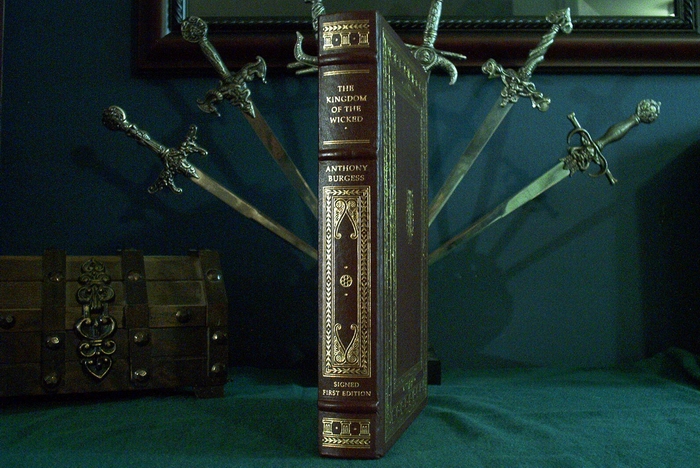
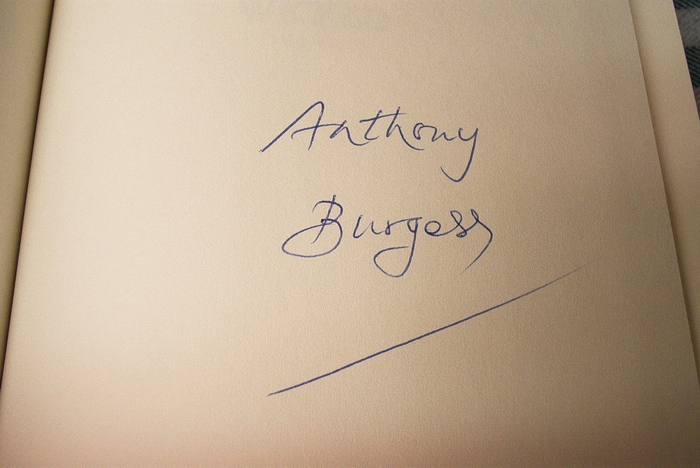
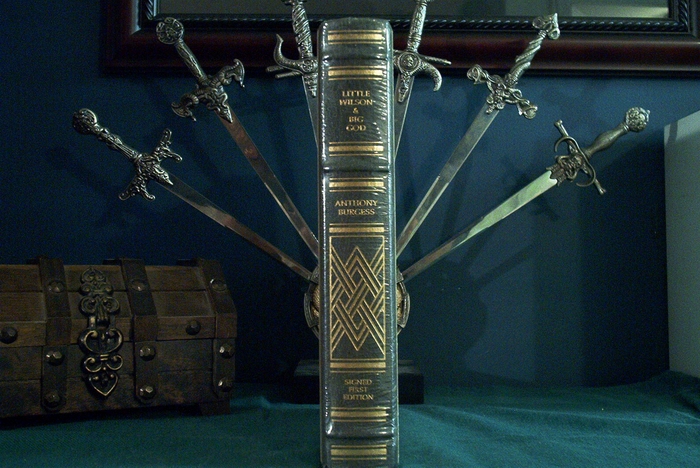
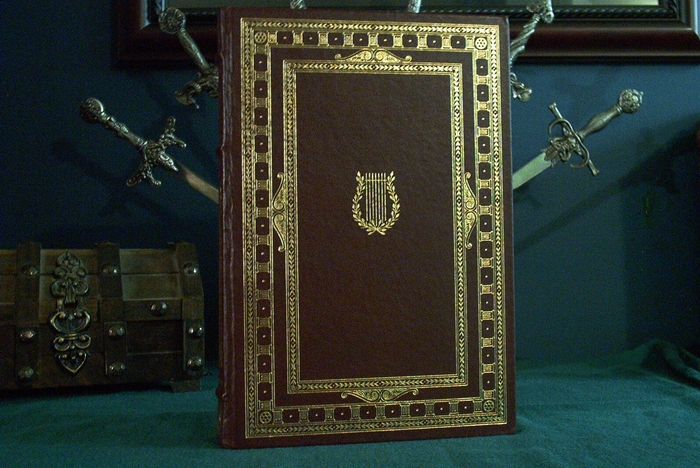
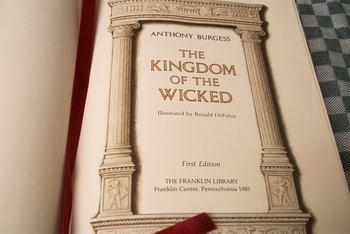
Comments
Post a Comment
Share your best book review and recommendation